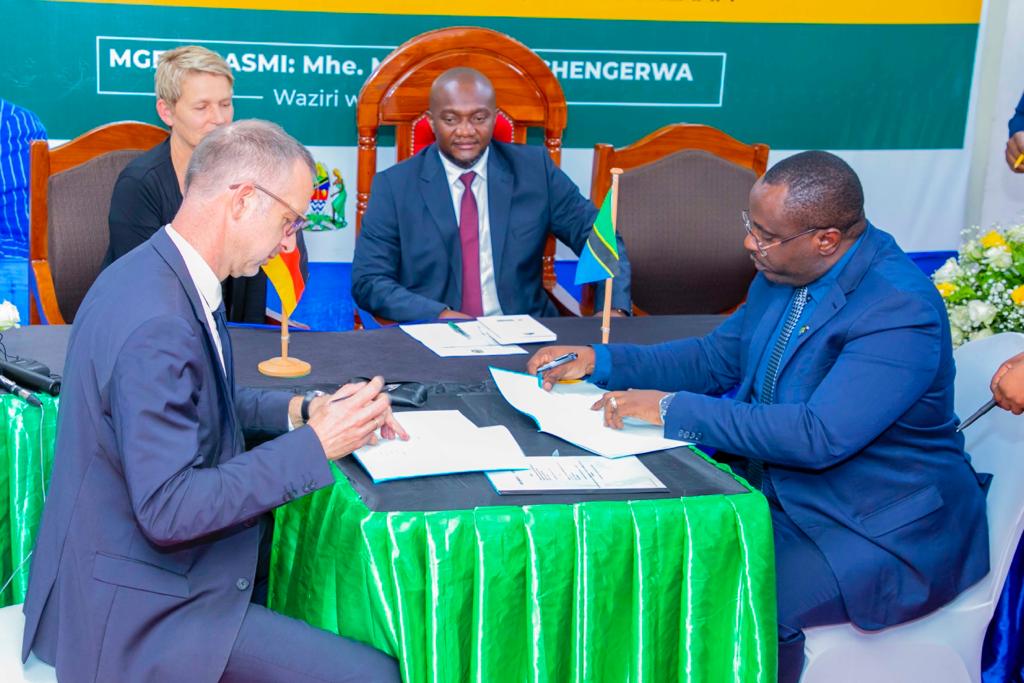
TANZANIA, through the Ministry of Natural Resources and Tourism (MNRT) and the Deutsche Gesellschaft für Internationale Zusammenarbeit (GIZ), on Thursday signed implementation agreement for a programme aimed at mitigating human-wildlife conflicts.
The signing marks the opening of the roadmap for the technical cooperation support to the Wildlife Division in the Ministry, on implementing the National Human-Wildlife Conflicts Management Strategy (NHWCMS).
The Wildlife Director, Dr Maurus Msuha, noted that the agreement seeks to support efforts by the government to implement a national strategy for the management of Human-Wildlife Conflict (HWC) in the country.
“This is a three-year project with funding amounting to six million Euros; the project will operate within the Selous Ecosystem, in the Southern Tanzania,” Dr Msuha explained
The signing of the agreement was held in Dar es Salaam by the Permanent Secretary in the Ministry of Natural Resources and Tourism, Dr Hassan Abbas and GIZ Country Director for Tanzania and the East African Community (EAC), Dr Mike Falke.

The project of HWC Mitigation is one of the programmes, resulting from the technical cooperation agreement between the governments of the Federal Republic of Germany and
the United Republic of Tanzania, dated August 8, 2022, with reference to the government negotiations of October 25, 2021.The ‘Mitigation of Human-Wildlife Conflicts’ is part of the German development cooperation programme “Protection and Sustainable Use of Biodiversity in Tanzania”, jointly implemented by GIZ and the KFW on behalf of the German Ministry for Economic Cooperation and Development (BMZ).
The program objectives are centered on effective protection and sustainable use of natural resources contributing to rural development, safeguarding the integrity of globally significant ecosystems, and improving the management of human-wildlife conflicts by key actors in Tanzania.
Minister for Natural Resources and Tourism, Mr Mohamed Mchengerwa, applauded GIZ for its support, as a vital approach is marked to implement a national strategy for the management of human-wildlife conflict in the country.
“One of the key challenges in wildlife conservation today is human-wildlife conflict, particularly with elephants, and this conflict is a threat to human life, they destroys crops, and therefore causes food insecurity in communities,” he stressed.
On the other hand, the Ambassador of the Federal Republic of Germany to Tanzania, Ms Regine Hess, said that the countries have to learn from each other as they have the same problem in the human-wildlife conflict.
“We have wolves, we have bears, and they do damage, and the farmers in Germany find solutions as well, so we can learn from each other,” she said.
The endorsement project will target 30 villages in the Ruvuma Landscape, south of the Nyerere National Park and the Selous Game Reserve, especially in the districts of Liwale (Lindi region), Namtumbo, and Tunduru (Ruvuma region).
The Mitigation of HWC Programme will engage four fields of activities; improving the coordination capacity of the Wildlife Division and implementation of the NHWCMS; strengthening the inter-institutional response to human-wildlife conflict and mitigation.
Others are empowering communities to reduce the negative impacts of human-wildlife conflict and mitigation on their livelihoods and security; and enhancing the capacity of educational institutions and media to integrate content relevant to human-wildlife conflict and mitigation into their work.

No comments:
Post a Comment